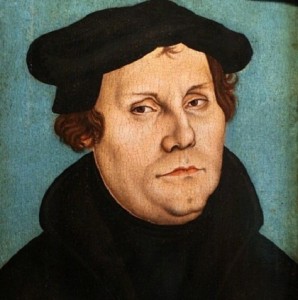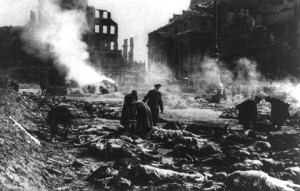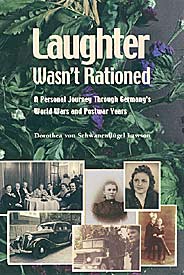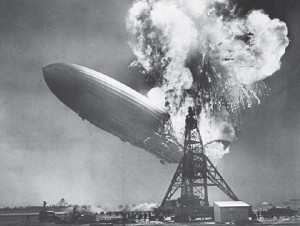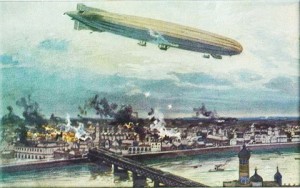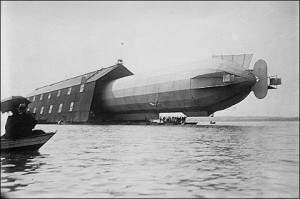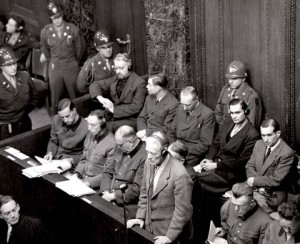What do Roman emperors, ancient tribal alliances, and medieval power plays have in common? They all helped shape what we now know as Germany. The Early History of Germany is a riveting saga of cultural fusion, fierce independence, and geopolitical drama that laid the foundations for a modern European powerhouse. In this article, we’ll take you on a … [Read more...]
Martin Luther
On the eve of All Saints' Day in 1517, Martin Luther, a professor of theology at Wittenberg University in Saxony, posted ninety-five theses on a church door. Luther's primary concern was the sale of indulgences--papal grants of reduced punishment in the afterlife, including releases from purgatory. First written in Latin, the theses were soon … [Read more...]
Bombings and air-raids during WWII
By Dorothea von Schwanenfluegel Lawson I would like to share with you one more episode of my life. Let's fast-forward to Berlin. The year is 1944. Bombings had become the order of the day & so had air raids. In April, our suburb was under attack & bombs were detonating everywhere with earsplitting blasts as if all the houses were going to … [Read more...]
“Aryanization” of Germany in 1933 and mass book burning
By Dorothea von Schwanenfluegel Lawson Here are some behind-the-scene personal experiences from the 1930's that might be of interest. In 1933, our Nazi government appealed to us for a nationwide "non-Aryan" boycott. I experienced the proposed boycott the hard way. One day I went to the local haberdashery I had been frequenting for years, a … [Read more...]
World War Memories
Life in Germany before and after the Versailles Treaty, and Hitler's rise to power By Dorothea von Schwanenfluegel Lawson It is a pleasure to share a few thoughts with the Internet world. You must understand, all this technology is new to me, & frankly at my age, I'm not sure I can keep up with it! You see, I may be a few years older than you, … [Read more...]
The Death of the Hindenburg
Hindenburg was a masterpiece of zeppelin design. Equipped with four 1200 hp Mercedes Benz engines, having 245 m in length, about 41 m in diameter and almost 212000 cubic meters of gas volume, she still holds the record of the largest airship ever built and flying. She can be truly called the Titanic of the aircraft. Although the Hindenburg is most … [Read more...]
Zeppelins the Bombers
Zeppelins became the frightful reality of WWI. The huge ships carried and dropped the bombs on France and Britain, and there was no defense against the midnight raids of the monsters. The cruising speed of the zeppelins was comparable to the airplanes of the enemies, and the great area allowed lots of guns bristling out of an airship, so it was not … [Read more...]
Zeppelin Airships
On July 2, 1900, the first Zeppelin airship took its maiden flight over the Lake Constance near Friedrichshafen. Its creator, Count Ferdinand von Zeppelin, spent two years and all his resources to build the giant - 125 m in length and about 12 m in diameter - cigar-shaped airship equipped with two 14.7 hp Daimler engines. During the construction … [Read more...]
Nazi Gold
To finance such a war as World War II, Germany had to be an enormously rich country, ... but it wasn't. The level of the Reichsbank's gold reserves was extremely low by the beginning of the war. However Germany successfully sustained its war efforts by purchasing necessary war materials from the neutral countries like Argentina, Portugal, Spain, … [Read more...]
Nazi Nightmares
Nazi doctors carried out direct medical killings as part of "life unworthy of life" policy, as well as deathly experiments on concentration camp prisoners. German doctors were forced to do that according to the Nazi medical decisions. There were two racial programs which directed the entire work of the German physicians of that time: - coercive … [Read more...]
- « Previous Page
- 1
- …
- 8
- 9
- 10
- 11
- 12
- 13
- Next Page »

